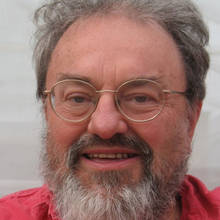Editors and contributors for the third edition
The editor-in-chief of the third edition is Christopher Moseley, who also edited the Encyclopedia of the World’s Endangered Languages (London: Routledge 2007) and the Atlas of the World’s Languages (London: Routledge 1994 and 2007). The cartographer of the 2009 print edition is Alexandre Nicolas.
A large and geographically diverse group of regional editors and contributors, some of whom had already been involved in the previous two editions, worked with Christopher Moseley to provide and validate languages data and write essays. These experts are:
- North Africa and Arab States: Salem Mezhoud, Yamina El Kirat, Bonnie Stalls
- Sub-Saharan Africa: Matthias Brenzinger, Herman Batibo
- Europe and the Caucasus: Tapani Salminen, Tjeerd de Graaf
- Siberia and North-East Asia: Juha Janhunen
- South-East Asia: David Bradley, Suwilai Premsrirat, Gérard Diffloth
- Pacific, Indonesia and Papua-New-Guinea: Darrell Tryon
- Australia: Michael Walsh
- North America: Lyle Campbell (with Naomi Fox and Chris Rogers), Mary Jane Norris
- Mexico and Central America: Yolanda Lastra
- Lowland South America: Marleen Haboud, Bruna Franchetto, Denny Moore
- Highland South America and Caribbean: Willem Adelaar, Gustavo Solis Fonseca
- West and Central Asia: Hakim Elnazarov
- India and Himalayan Chain: Stuart Blackburn, Jean Robert Opgenort, Udaya Narayan Singh
Some specialists also accepted to provide complementary information on specific areas or languages, including Alexandre François (North Vanuatu), Sun Hongkai (China), Bruno Poizat (Aramaic), Tulio Rojas (Colombia), Jean Sibille (Aramaic) and Marie-Claude Simeone-Senelle (Southern Arabic Peninsula).
The interactive online edition of the UNESCO Atlas of the World’s Languages in Danger is complementary to the print edition and may be cited as:
- Moseley, Christopher (ed.). 2010. Atlas of the World’s Languages in Danger, 3rd edn. Paris, UNESCO Publishing. Online version


